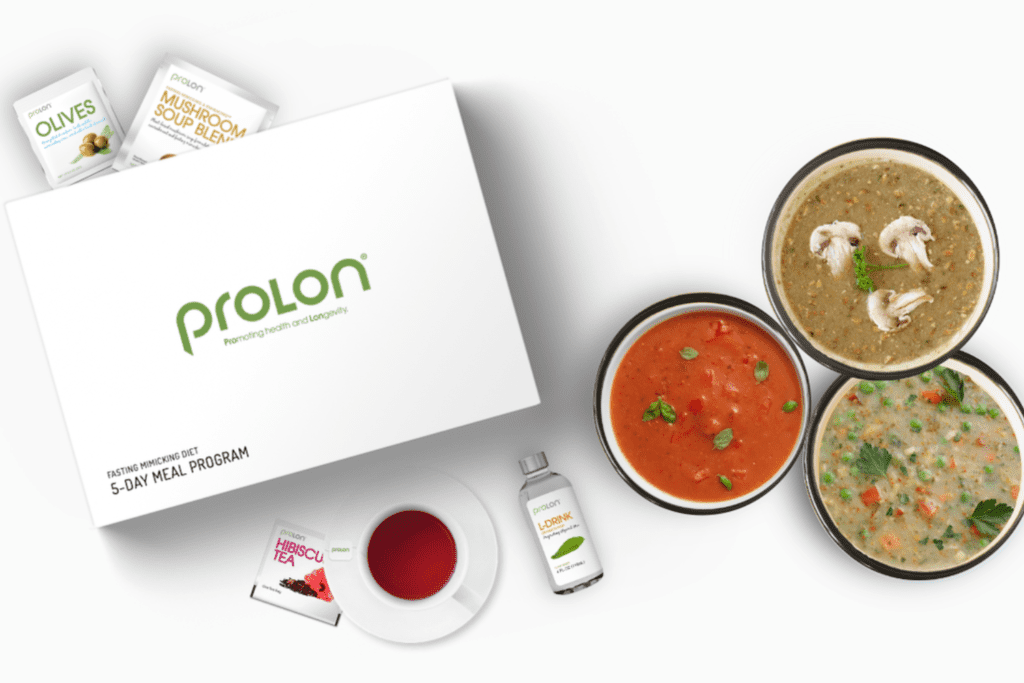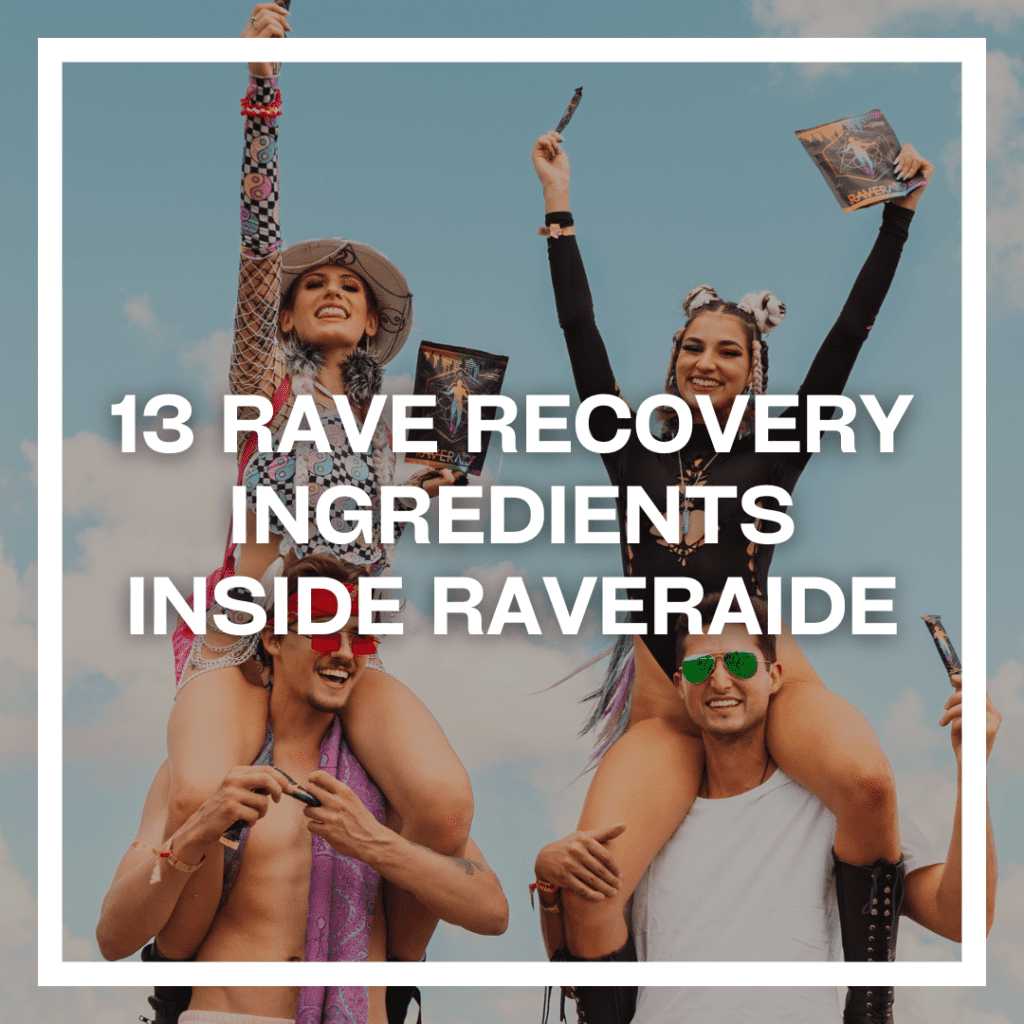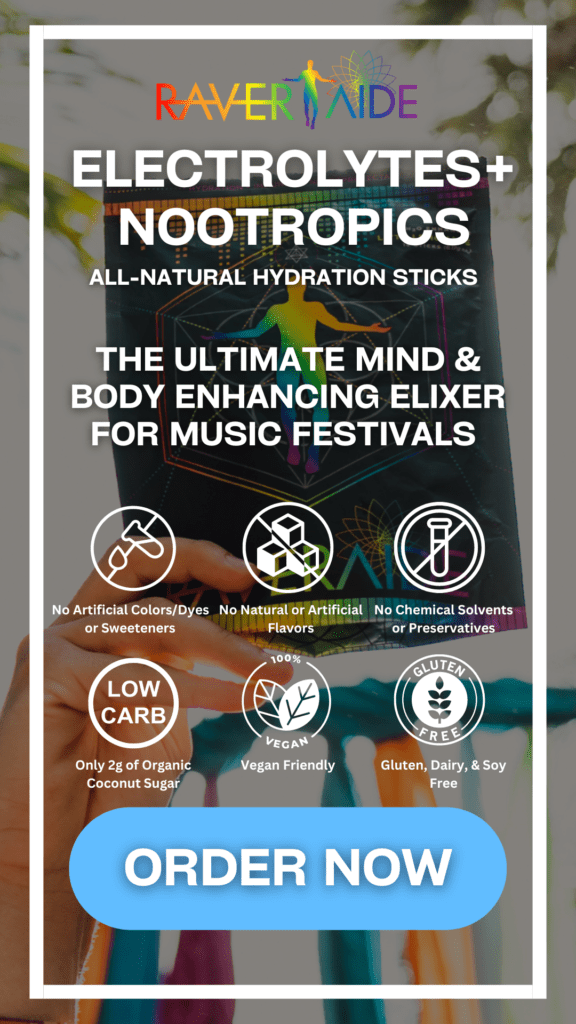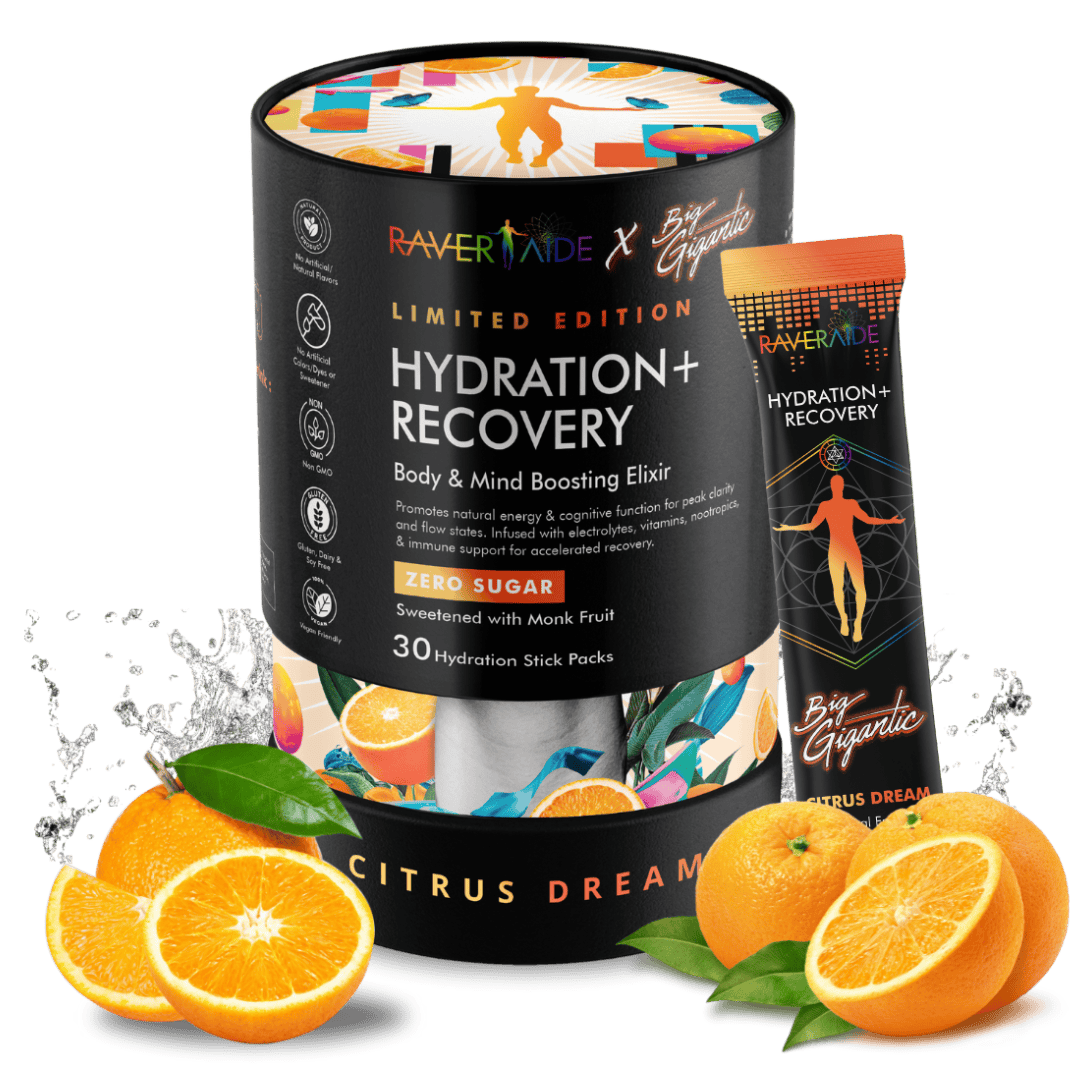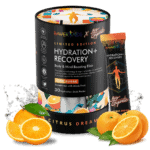
Can Fasting Be a Secret Hack For Post Festival Recovery?
BLOGS
17 min read
Can Fasting Be a Secret Hack For Post Festival Recovery?
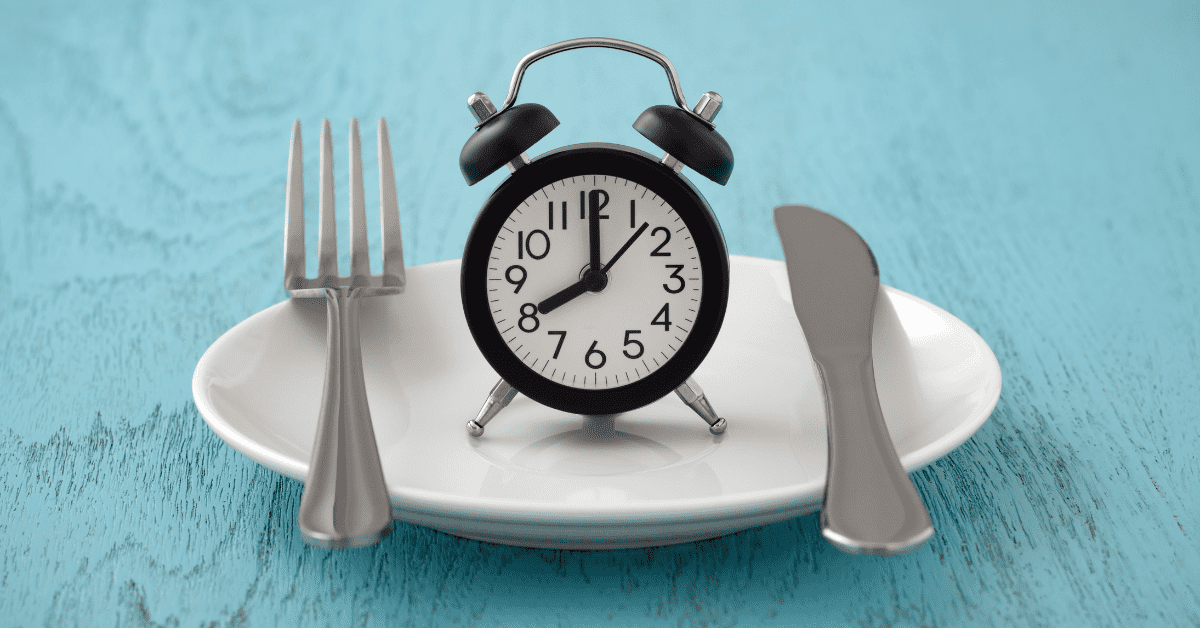

By Jake Kocherhans
Raveraide Co-Founder
Are you looking for an effective tool for speeding up your post festival recovery?
If you regularly attend raves and music festivals like me, chances are you’ve probably researched a time or two some different ways to get you feeling back to normal after a weekend long event.
We love the experience of attending music festivals, but we also want to do everything we can in between them to stay in good physical and mental health.
As someone who’s spent countless hours researching and testing different tactics for rebounding faster after festivals, I can tell you that fasting has been one of my favorite strategies I’ve implemented, and still continue to implement to this day.
My hope is that by the end of this post, you will feel inspired to incorporate it in your own life so that you can begin reaping the incredible benefits that fasting can provide.
Using Fasting For Post Festival Recovery
The History of Fasting
Fasting has been used as an ancient tradition for centuries as part of religious ceremonies, as well as everyday life. Prior to the agricultural revolution, many hunter gatherers probably had to go days, if not weeks, without food if they were unable to find an animal to kill on their hunt. Because food was scarce, fasting was a natural part of our evolutionary process, and it wasn’t until about 100 years ago that we actually began to have the exact opposite problem.
Advances in technology have solved so many of the challenges that our ancestors had to endure. However, the irony is that with these advances, the pendulum has shifted and instead of suffering from a lack of food, we now suffer from an abundance of it. We’re now blessed to live in a society where we often don’t have to walk further than a mile or so in order to access food. We’ve got grocery stores, gas stations, and restaurants on every corner of every street in America. However, these blessings come with their own set of new obstacles we have to overcome.
So many of us have lost connection to our body’s hunger and satiety signals, as we live in a world where overprocessed and hyperpalatable foods make up the majority of our food we consume. These chemically altered and engineered foods hijack our taste buds, causing us to over consume to the point where nearly 40% of the US population is now obese.
And while I’m excited to dive into the research and share all the many ways that fasting benefits our health, I also see so much value in fasting as a way to reconnect with our body, and break those chains of addiction that so many of us have to food in today’s modern age. Using it as a tool to break the associations of feeling like we always need to be eating something, and that if we go even a couple hours without food we’re going to die.
The reality is there’s so many benefits that can be reaped from fasting, both from a physical standpoint, but also from a mental and spiritual standpoint. It’s funny to think that as someone who didn’t grow up in a religious household, I always thought it was odd that so many organized religions practiced some sort of fasting. As I’ve gotten older, I’ve learned to genuinely appreciate and understand the mental discipline component that’s developed when you practice fasting on a regular basis. It’s the practice of learning how to detach from anything outside of yourself to feel whole, and to regain that intuitiveness of being able to listen to our own bodies.
There’s so much we can learn from these ancient practices that have been around for centuries, and I believe it’s important for optimal health that we get back touch with our ancestral roots and expose ourselves to the elements that we as humans evolved with. They may not always be comfortable, but practices like fasting, hot/cold exposure, etc… are what truly create more strength & resiliency inside all of us.
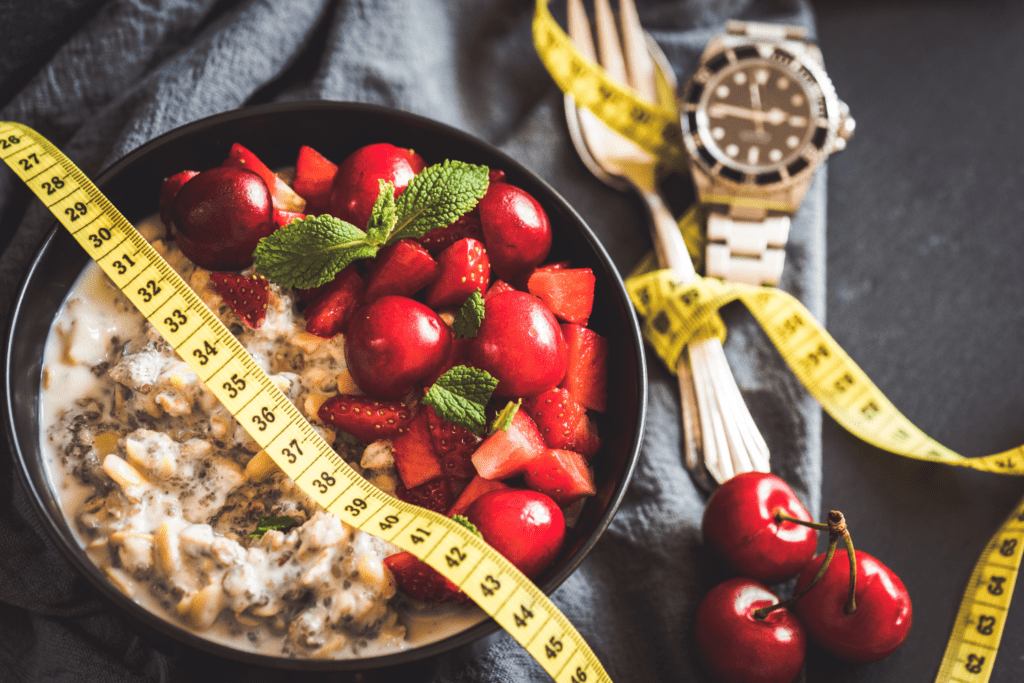
The Science of Fasting
So let’s dive into some of the exciting research that’s been done on fasting. Arguably the greatest benefit that you’re going to reap when implementing a fast for 18 hours or longer is the cellular regeneration and cleanup process that takes place inside of your body.
There’s something called autophagy which in Greek literally means self eating. This is a process that occurs during a period of caloric restriction which starts somewhere around 18 to 24 hours without food, although studies aren’t very conclusive on when exactly autophagy starts. During this time, your cells begin a sort of recycling process, where any old and damaged cells that have accumulated over time will begin to destroy themselves, and new healthy cells will take their place. This is an incredibly important process as these damaged cells are a primary contributor to aging, and if left unkempt for too long, can lead to serious diseases such as cancer down the road. So through this process of cellular regeneration, you are essentially reversing your biological clock, replacing old & damaged cells with brand new ones. Isn’t that amazing?!
This process also occurs within the lining of your gut, helping to rebuild strength in your intestinal walls & gut microbiome. Because of this, fasting can be an incredible tool for individuals who suffer from IBS, food sensitivities, or any other gut/digestion issues.
In addition to this, fasting has been shown to be incredible for your brain health, as it can promote the growth of new neurons through the process of neurogenesis. What’s crazy is that up until a few years ago, it was previously believed that you had a predetermined set of brain cells, and once they were gone, they were gone for good. But we now know that through the process of activating neurogenesis through fasting, we have the ability to grow new, healthy brain cells! This can help to prevent cognitive decline over time, and reduce the risk of developing neurodegenerative diseases like Alzheimer’s and Dementia as we get older.
Another cool way that fasting improves your brain and mental health is by boosting levels of a protein called Brain-Derived Neurotrophic Factor, or BDNF. This important protein has been dubbed “Miracle Grow for the Brain” and has been shown to play a key factor in things like learning, memory, decision making, and our mood. In fact, studies have shown that individuals who suffer from depression have lower levels of BNDF in their brains, and when supplemented with BDNF, actually show an alleviation in depressive symptoms.
There was a study that was conducted on a group of individuals practicing the religious ceremony known as Ramadan. This is a Muslim tradition where on the 9th month of the Islamic calendar year, individuals practicing the tradition will fast every day from dawn until sunset over a 30 day period. Because they were already in a very strict fasting routine, researchers decided this would be the perfect group to test and see what’s going on inside the brain during this time. During the study, researchers tested BDNF & serotonin levels of the participants two days prior to the fast, then retested them on day 14 and day 29.
They found that BDNF levels in the participants had increased in the brain by 25% after 14 days and 47% after 29 days. They also found that serotonin levels increased in the brain by 43% after 29 days. This is because increasing levels of BDNF in the brain also increases something called synaptic plasticity, which improves the communication of feel good chemicals and neurotransmitters like serotonin and dopamine. So the more BDNF you have, the easier it is for your brain to receive those feel good chemicals and allow you to feel better each day.
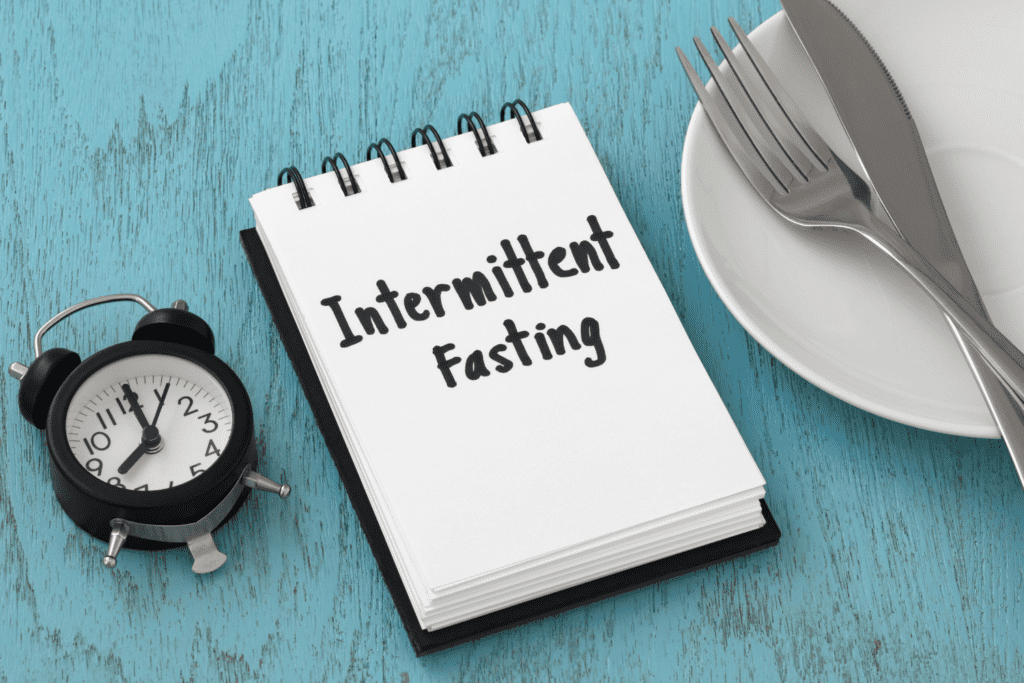
The Do’s and Don’ts of Fasting
While we’ve only scratched the surface of the benefits you can reap from fasting, I’d like to take a second to share some of the do’s and don’ts of implementing this protocol so you can ensure it’s done in the healthiest & safest way possible.
It’s very easy to take something incredibly beneficial for your health like fasting, and turn it into something unhealthy. One thing that I always tell people before they try fasting is that this is NOT a weight loss strategy. Personally I believe fasting should never be used as part of a weight loss protocol, specifically because I believe it can create a very punishment based mentality for someone following a diet. Think about it, maybe one day you decide to go out and have a cheat meal or something you feel isn’t on your “meal plan”. You then think to yourself, “This is fine, I’ll just not eat for the next day or two to make up for it”. Overtime, you can begin to develop an unhealthy association with food where starving yourself becomes the go-to strategy anytime you eat “bad”. It becomes a tool for punishment, and can lead to a lot of unhealthy behaviors around food if you’re not careful.
Personally I don’t believe that’s what your intent should be when implementing this practice. When you choose to fast, you should be doing so for the many health & longevity benefits, not because you simply want to restrict calories and lose weight.
Now, I know there’s a lot of individuals who may fight with me on this saying “well I lost a ton of weight from intermittent fasting, so it must work”, but let me explain something first.
As someone who worked as a Certified Weight Loss Specialist for over 6 years, I can tell you that there’s nothing inherently magic or special about intermittent fasting as it relates to fat loss. If you or anyone you know has experienced weight loss results following an intermittent fasting protocol, chances are that weight loss was due to a more condensed feeding window, and as a result, a lower daily calorie intake. If you think about it, when someone goes from eating 16 hours each day down to 8, what are the chances they are going to be eating less food as a result? My guess is they’re pretty high.
If you decide to incorporate intermittent fasting into your routine, what’s important is that you are still eating an adequate amount of food to ensure you are getting enough protein, healthy fats, and other essential nutrients in your diet. Instead of simply cutting out half of your meals, work with a professional who can help figure out what your macros need to be, so that you can ensure you do not suffer from nutrition deficiencies over time.
As with many of the other protocols we discuss on this site, we strongly encourage you to please speak with a qualified physician before implementing this protocol. We are not doctors, and it’s crucial you speak with a health professional before implementing fasting if you have any sort of pre-existing health condition. Once again, fasting can be an incredible tool, but it can also be potentially harmful if done incorrectly.

Fasting Protocol Tips
At this point, I want to get into a specific protocol that you can implement to ensure that your fasting experience can be as easy and as effortless as possible. Especially if you plan to incorporate those prolonged, 24-48 hour fasts, it’s very important that you plan ahead and follow the tips listed below, otherwise it’s going to feel like an uphill battle.
1.) Decrease Your Meal Sizes Leading Up To The Fast
When preparing for your fast, it’s helpful to slowly decrease the size of your meals leading up to it. Many people make the mistake of wanting to have “one final big meal” before they stop eating, but this is one of the worst things you could possibly do. This is because your hunger and energy are largely dictated by your blood sugar levels. Anytime you eat a big, carbohydrate rich meal, you experience a spike in blood sugar, followed by an eventual dip or crash. This is what often leads to the dreaded “afternoon crash”, and why you can feel more lethargic at certain times of the day than others.
When fasting, the last thing you want to do is spike your blood sugar with a big meal right before you start, then have it dip down without any food to re-energize you and bring your blood sugar back up. Not only is this going to make you feel tired and groggy, but you’re also going to experience serious cravings and hunger throughout the entire fast.
Ideally, you want to slowly taper the size of your meals and the amount of carbs you’re consuming leading up to the fast, then have a high protein/no carb meal right before you start. I personally like having this final meal around 6 PM, since it generally holds me over the rest of the night, and puts me at about 12-14 hours into my fast by the time I wake up the next morning.
2.) Rehydrate Each Morning
Now when you wake up in the morning, I would suggest mixing a teaspoon of sea salt into 8-12 oz of water and drinking it as soon as possible. When fasting, your body is going to deplete water and nutrients a lot faster, which can sometimes cause you to get headaches. This typically happens because you are sodium depleted, and can easily be fixed or avoided by simply adding a little sea salt to your water throughout the day. It’s VERY important to stay hydrated throughout your fast, so I would encourage you to by a gallon jug that you can fill up each morning to easily track how much you are drinking throughout the day.
Now one common question many people have is whether or not it’s okay to drink other non-calorie beverages, such as coffee or tea.
Unfortunately, there’s not a lot of conclusive data on this and I’ve heard differing opinions from multiple professionals.
Some say that because your body has to metabolize caffeine, it has the potential to kick you out of your fast. I’ve also heard others say that so long as your coffee or tea is calorie free, meaning you’re not adding creamer, you’re not adding sugar or anything like that, then it’s perfectly okay to drink. Now if you want to be safe, I’d suggest sticking to water only. I also want to be clear that you ALWAYS want to drink water throughout your fast, as you will probably feel pretty crappy without it.
I do know that for my coffee and tea lovers, that little bit of caffeine can sometimes give you that extra boost you need to really power through your fast. I personally drink black coffee when I fast and I still notice incredible benefits, but that decision is entirely up to you.
However, one thing that does affect autophagy and will kick you out of your fast is amino acids. Your body does have to metabolize those, so make sure that when you’re fasting you stay away from any branched chain amino acid (BCAA) or essential amino acid (EAA) supplements. Even if they are calorie free, it will diminish some of the benefits that you derive from your calorie restriction.
Aside from that, minerals, sea salt, electrolytes, those all seem to be fine, and I would encourage you to consume those regularly to ensure you’re replenishing lost nutrients.
3.) Reintroduce Food Slowly
When you’re ready to break your fast, it’s important you don’t celebrate your accomplishment by going out and ordering a big greasy cheeseburger or pizza. I’m telling you from personal experience that this wreck your gut, and it won’t be fun.
The ideal approach is to slowly ease back into it, reintroducing easily digestible foods such as bone broth or steamed vegetables. Each person will have different sensitivities after coming out of a fast, but generally the best protocol to start with is a small, low protein meal with vegetables or soup/broth. From there, you can slowly increase your calories & meal size throughout the day until you get back to where you were before.

The Fasting Mimicking Diet
Now, one last resource I want to share with you around fasting is a breakthrough, cutting edge diet that was developed by one of the leading researchers in the field.
His name is Dr. Valter Longo, and he’s gained a ton of recognition in the scientific community for his development of something called the Fasting Mimicking Diet. This is a form of caloric restriction where instead of completely eliminating food over a 24-48 hour period, you eat around 600-800 calories per day of specific macronutrient ratios over the course of five days. He’s discovered that with this specific protocol, individuals can reap the same benefits of autophagy, cellular regeneration, and all the other amazing benefits related to fasting, without having to completely abstain from food. This breakthrough is a result of over 20 years of research, and numerous studies are still being done on its potential to help patients with cancer, diabetes, and cardiovascular disease.
Dr. Valter Longo has since created a company called ProLon, which provides you with a kit containing all the different foods, powders, and bars for you to eat over your five day fast. At the time of this post, you can order the ProLon Fasting Mimicking Diet kit for $185. It may seem a little steep or pricey, but I wanted to share it for anyone who is interested in trying this fasting protocol out for themselves.
Photo of Prolon Fasting Mimicking Diet Kit
How To Get Started
At this point you might be asking, “how often should I be incorporating these fasts?” While this is highly individualized and you should always consult with a doctor before taking any suggestions I give, I typically do at least one 24-36 hour fast each month. Aside from that, I strive to keep my feeding window to a maximum of 12 hours each and every day. This means that if I have my last meal at 8 PM, then I don’t eat breakfast until 8 AM the following day. This is very easy and achievable for me, but once again it’s important for you to start slow, and gradually increase your fasting duration over time.
Remember, fasting is a powerful tool that can be incredibly beneficial for our health, but we have to be responsible with how we use it. If you’re brand new to fasting, then don’t start with a prolonged 24-48 hours fast right off the bat. Simply start by condensing your feeding window each day down to 12 hours, then slowly increase that little by little as you start to get used to it. Over time, you will gain the confidence to try fasting over a longer period of time, and if you follow the steps outlined in this article, you’ll find that it can be a very enjoyable experience.
Lastly, if you’re looking for some other tips & hacks for how to speed up your recovery after a festival weekend, check out these awesome posts:
This post was all about how fasting can help with post festival recovery.

Jake Kocherhans
As one of the co-founders of Raveraide, Jake has spent the past 6 years of his life as both a health coach and marketing consultant for small businesses. He began attending music festivals in 2018, and is incredibly passionate about sharing both his love for health & fitness, as well as his love for the EDM community. His favorite EDM artists are Subtronics, Seven Lions, LSDREAM, and Blanke. Follow him on Instagram @jakekocherhans
Recent Posts


The Ultimate Guide To EDC Orlando

Lost Lands Music Festival – A Prehistoric Party

The Ultimate Guide to Beyond Wonderland at the Gorge



5 Legendary EDM Artists Every Raver Should Know

The Ultimate Guide To EDC Las Vegas

17 Artists You NEED To Catch At Forbidden Kingdom

Road to EarthFest 2023
Related Products
$55.55
48 in stock
Subscribe & Save 15%
$35.55
192 in stock
Subscribe & Save 15%
$35.55
Out of stock
More Stories

Copyright © 2022, RAVERAIDE
